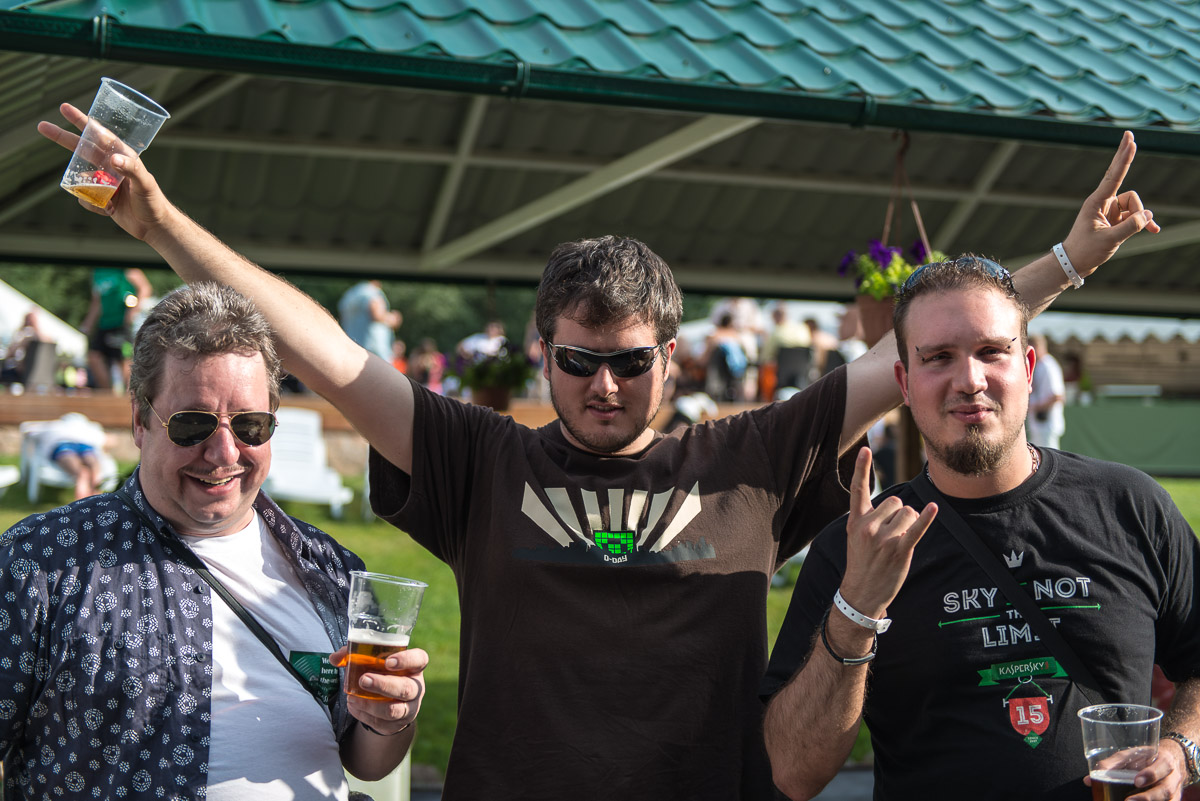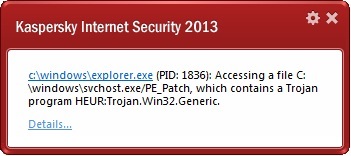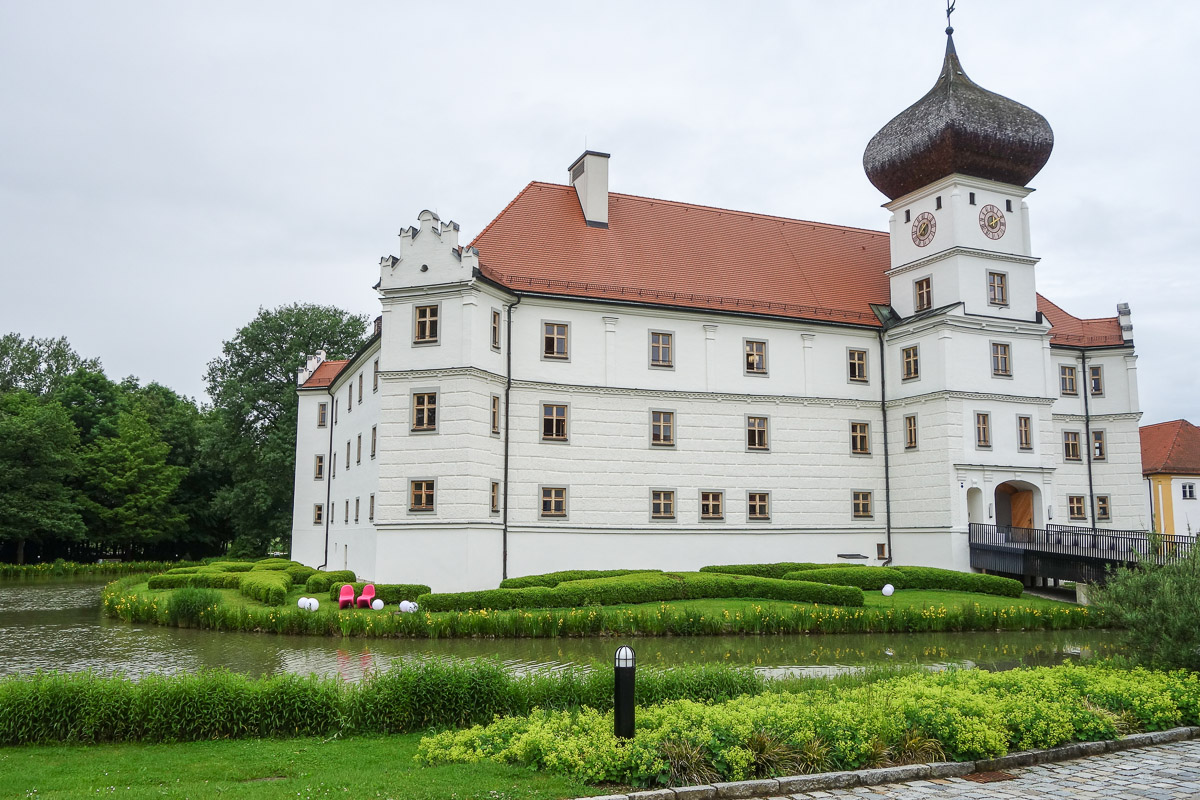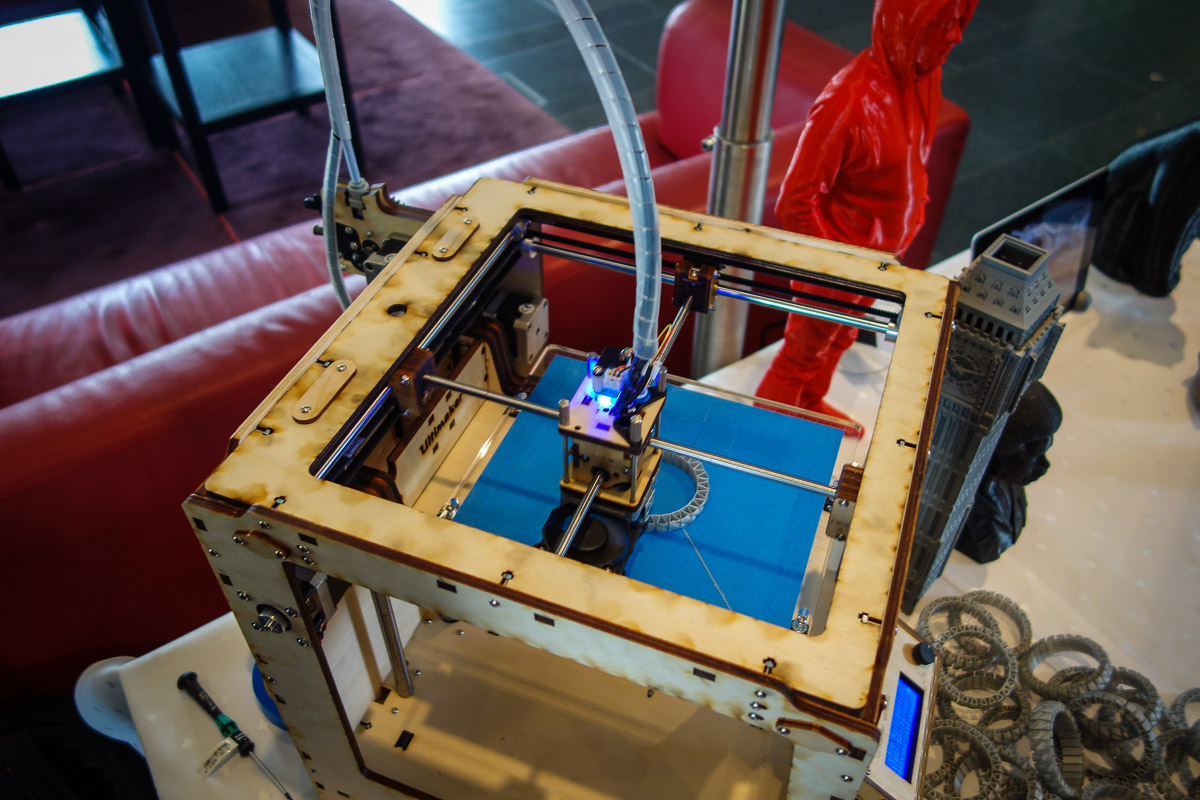July 23, 2013
Kobaycrashy!
The coolest car in Moscow…

… was totally smashed at the weekend not far from the Kremlin after Kamui Kobayashi’s unfortunate spill at Moscow City Racing. Somebody has even coined a new term – “Kobaycrashy” :)
NOTES, COMMENT AND BUZZ FROM EUGENE KASPERSKY – OFFICIAL BLOG
July 23, 2013
The coolest car in Moscow…

… was totally smashed at the weekend not far from the Kremlin after Kamui Kobayashi’s unfortunate spill at Moscow City Racing. Somebody has even coined a new term – “Kobaycrashy” :)
July 18, 2013
Yep, we’ve reached the age of consent folks! No more little 15, just sweet 16 :).
As per tradition, we celebrated our birthday in style – for the 15th time (no typo – see the ‘P.S.’ below). KLers from all over the globe descended on a spot in the countryside to the north of Moscow last Friday – which thankfully was a beautiful sunny day (not like last year’s washout:).
 Another year, another beer
Another year, another beer
July 15, 2013
Yia folks!
Fate saw to it that I recently found myself on the island of Santorini for a couple of days, which just so happens to be one of the most interesting and unusual places on the planet, and as such finds itself residing comfortably on my list of the top must-see places in the world.
For anyone hearing of Santorini for the first time, it’s a Greek island in the Aegean Sea, 100 kilometers north of Crete and around 200km southeast from Athens – here!
This was my third time on the island, so by now I know quite a bit about the place – and it’s all rather fascinating… so let me give you the inside story here, so you don’t have to trawl through site after site and still not get the real deal…
So, let’s start with the basics: Santorini is a volcano-island. (Yes, that is no doubt why I’ve just had my third trip there!) Or, to put it more precisely, it’s what remains of a volcanic caldera after it erupted thousands of years ago, plus a new, smaller volcano slowly rising up from the sea which now fills the caldera in the center of the archipelago. The walls of the crater are impressively tall – around 300 meters high and made up of black, grey, white and red volcanic rock. The effect is one of unearthly beauty, like being on another planet. A unique bit of topography.
Then there’s the multicolored beaches – civilized sandy ones (which you need to take a car/quad/motorbike to get to), and wild stony ones (only by boat or foot). There’s also the exquisite Greek food (fresh fish, lots of greens, tzatziki; but if you want steak – best wait till you’re back on the mainland), and multi-starred Metaxa… In short, a Mediterranean paradise :).

July 2, 2013
First, a bit of rewind/intro…:
100% guaranteed protection doesn’t exist. You probably know that perfectly well by now. Indeed, even the most reliable antivirus sometimes gets bypassed in professional attacks. That’s bad news enough already. What’s even worse news is that inferior antiviruses get bypassed a lot more frequently.
If they want, highly professional criminals can hack into anything; thankfully, such cyber-Moriatys are few and far between. For the most part, cyber-outrages are carried out by common-or-garden programmers who seem to get their right and wrong all mixed up – seduced by greed and thinking they can get away with it (ha!). These chancers usually don’t have sufficient criminal cyber-skills to pull off hacking the most advanced mega-defenses out there, but they are more than capable of getting into computers that are either not protected at all or which have colander-protection installed. And, alas, such comps in the world are twenty a penny.
The basic logic of it all is rather straightforward:
The stronger the protection – the stronger the defenses, obviously. At the same time, the more professional the attack – the stronger the defenses it can break.
Now, with 2.5 billion Internet users potential victims out there, this logic leads to the following economics:
Criminals don’t need to go to all the bother of coming up with super-mega skeleton keys for breaking into super-mega secure vaults (especially when what is often saved in such super-mega secure vaults can be some real creepy/weird/dangerous stuff it’s best not to know about). It’s much simpler – cheaper – to break into something more down-to-earth, like a neighbor’s network, since their defenses are bound to be much, much lighter, and their stashes more realizable.
So you get the picture: for the average hacker, there’s no point going to the trouble of preparing for and carrying out mega-professional attacks. Nor is there much sense in switching their criminal focus from Windows to Mac. It’s much more effective to ‘carpet-bomb’ – affecting as many victims as possible with non-pinpointed attacks that don’t take a lot of hassle or brains to carry out.
The better the protection – the less interesting it is for the bad guys. They won’t bother going to the trouble of breaking it, they’ll just find other – more vulnerable – victims elsewhere.
Now, let me tell you more about a feature that puts cybercrims off attacking particularly your comp, and has them decide to go elsewhere where the feature doesn’t reside. Yep, it’s time for another eye-opening excursion under the hood of our antivirus and to let you know more about how the letter K in your taskbar makes you a big turn-off to the cyber-trespassers – through protection from future threats with emulation.

July 1, 2013
Howdy all!
I’m not the world’s biggest fan of modern art, it has to be said; and I’m by far the most knowledgeable in this field… despite my regular visits to the Pompidou Center whenever I can fit them in. It’s just never all that clear to me when I stare at some modern kunst piece quite what the artist was depicting – or why. What was he/she trying to express, if anything? Other times – rarely – I do manage to ‘get it’, thankfully!

I mention modern art as we got to see quite a bit of it just recently. A group of comrades and I found ourselves at the Djerassi Resident Artists Program in California – a real out-of-the-way place in the middle of nowhere where artists can come and stay to inject new vigor into their creativity, be it painting, sculpting, writing, music making or multimedia-ing.

More: Modern, classical and natural art – simply, effortlessly pretty…
June 25, 2013
Privyet everyone – from Moscow!
This last fortnight has been non-stop darting about the globe for me. But now I’m back in pleasantly sunny Moscow and the pace has eased off just a little… which has given me some time to put fingers to keyboard and come up with this short summary of the previous two weeks.
In all, six cities were taken in: Washington, D.C., London, Munich, Tel Aviv, Jerusalem and Barcelona. Six hotels, six flights. Three conferences, seven speeches, dozens of interviews, and loads of very interesting meetings.
The last event was our European Partner Conference in Barcelona – at the stylish and hard-partying W Hotel on the shore of the warm Med with its nice long beach (must say, I’d never experienced the beach in Barca even though I’ve been here an untold number of times). We managed to take a dip in the sea and chill on the beach only after dusk as we had no time during the day. The beach was still in full tourist mode at night though, so the atmosphere was nice and vibrant. Advice: if ever in Barca, don’t miss out the beach.
 Party city + party beach = Barca
Party city + party beach = Barca
June 17, 2013
Shalom folks!
Last week I found myself in Israel, where a big fuss was being made over an event we were taking active part in: the Jerusalem Formula – Peace Road Show. In LOUD attendance were Scuderia Ferrari and Marussia F-1 racing cars, and also GT Ferrari Challenge, Le Mans prototype and DTM Audi cars. What a din that lot made!
Around 120,000 motorsport fans turned up to see the spectacle over two days. I imagine the labyrinth of streets in the Old City had mostly emptied while the racing was going on… but I didn’t see that so can’t confirm. This is what I saw:

June 14, 2013
Hallo ihr alle!
In London it was dry and sunny, but not far away in Central Europe they were completely washed out with heavy and persistent rain. And that included Bavaria: gray skies and seemingly endless intermittent precipitation – nothing like what you’d normally expect in June.
We were in Germany – just outside Munich – attending the annual 24 Hours Conference VIP-shindig organized by Deutsche Telekom – in a rather fine ancient chateau. This is a get-together where a very heterogeneous selection of delegates from lots of different countries representing lots of different industries discuss the most burning issues of the day and share their dreams for a better future for all. Like :).

Of course, they had me in the room with ‘Security’ written on its large oak door. But while looking for this room we passed quite a few others with interesting ‘themes’ on their doors. One of the most intriguing ones was ‘3-D Printers’. I was more than just a little curious, so poked my head round the door. And lo and behold, there one stood – a 3-D printer – in the flesh!
Basically it’s a cube-shaped frame inside which a secured hose moves about emitting a thin stream of liquid plastic, which slowly builds up… whatever it’s programmed to – well, so long as they’re small plastic knick-knacks. You can see some such knick-knacks next to the printer in the photos:

More: What industries would disappear first with the advent of high-quality 3-D printing?…
June 10, 2013
Good day everyone – from London!
I don’t think I’ve ever been in London in summer. Fall, winter, spring – many times, but never summer, for some strange reason.
And so I was unaware, perhaps naively, that in summer London is at its most touristy. Along the bank of the river Thames (my favorite route for a stroll – easy to locate, easy to navigate, and you get to see plenty) we found ourselves having to shuffle our way through heaving crowds. The line – queue! – for the London Eye was just bonkers long (reminding me of the absurdly long lines for passport control at JFK!). Then there were all the street shows, musicians and cyclists, and yet more lines – for ice cream.
June 5, 2013
NZ-2013. Day 15. Mistakes.
Those of you who’ve been following me around NZ with this travelogue will already know how unexpected torrential rain ruined our plans several times. Despite our heroic efforts to see everything, multiple shuffling of the route, and the extra hundreds of miles on the road – some must-sees remained inaccessible and thus unseen. They’ll just have to wait till next time…
Anyway, today I’ll be telling you a little about what we missed, just to make this travelogue exhaustive in terms of its covering all the must-sees of NZ – given good weather.
There were five must-check-outs we missed, as follows:
1. State Highway 6 – along the west coast of the South Island. We got to see only its northern section, but if the southern part is as beautiful – a leisurely drive along it is mandatory. Especially for lovers of hairpin bends :).